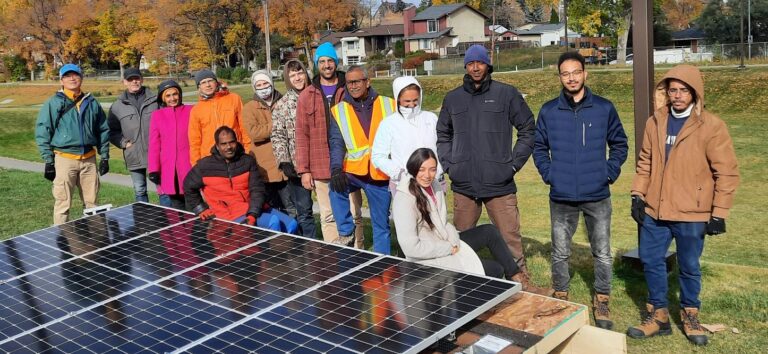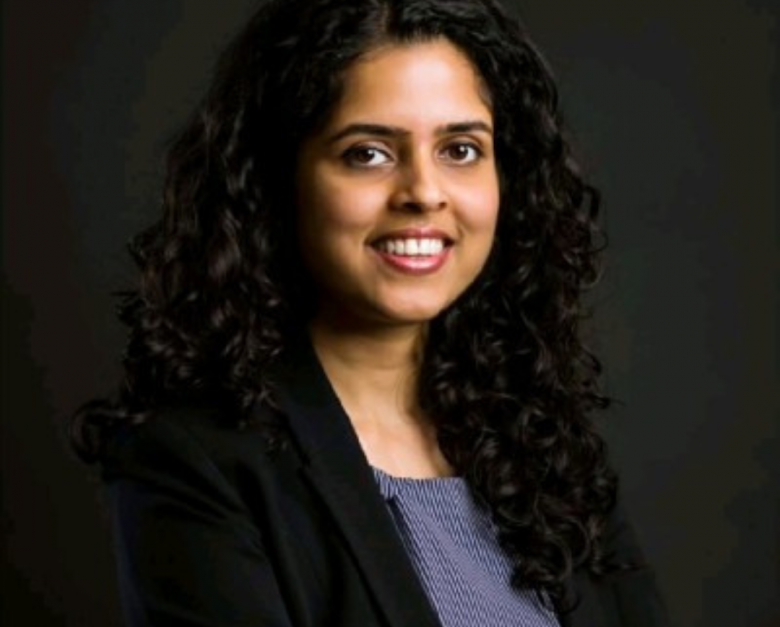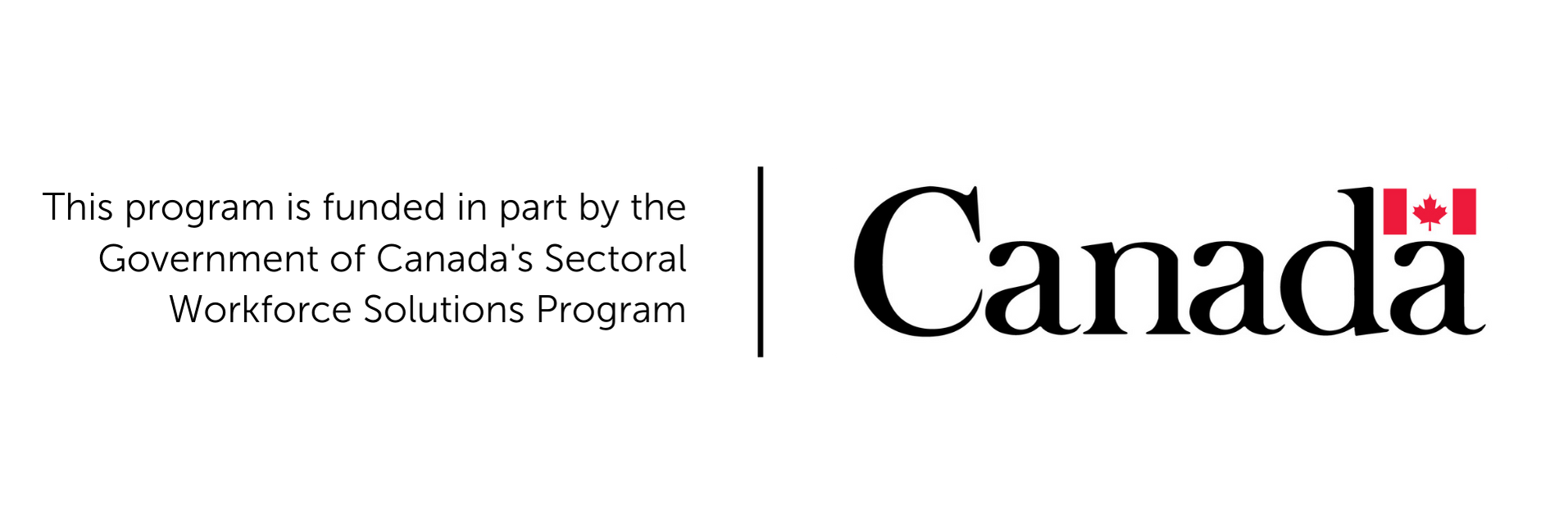Celebrating one year of solar training at the Green Skills Academy


Written by: Ive Velikova, Solar Program Coordinator of Green Skills Academy
“The Solar Installation program is equipped us with the right skills, technical, administrative and soft skills. We can launch ourselves in the solar job market with confidence and know that we'll be successful."
Snehal Khade, a Solar Installation course participant.
At the start of a new year, we reflect on a year of remarkable growth and change. Some of this growth happened in Relay Education’s Solar Installation Training Course. We share this story with pride and excitement. It tells of the big impact the program had on people and communities.
The Solar Installation program launched a year ago as part of the Green Skills Academy. The Solar Installation course is one of four courses at the Green Skills Academy that is helping to build the green workforce. The goal of the course was clear: to prepare people for a career in solar installation. It also aimed to foster diversity and inclusivity in the renewable energy sector.
From the beginning, the Green Skills Academy prioritized reaching underserved and underrepresented communities. This included Black, Indigenous, People of Colour, newcomers, Women, and gender diverse individuals. In doing so, the program aimed to break down barriers and create equitable opportunities in the solar industry.
Building Skills, Building Futures
Over ten cohorts of 222 participants have graduated from Solar Installation courses across four provinces. In each course, participants study the basics of electricity and solar energy. They improve their skills through hands-on installation experience and earn vital industry certifications.
Snehal Khade is a graduate of the Solar Installation course and a finance professional, who has worked at institutions such as JP Morgan and the Royal Bank of Canada.
“I'm at that stage in my career where I'm looking for something more,” Khade reflects. “I'm in a transition phase and when this opportunity came, I grabbed it with two hands, and I said yes.”

The Solar Installation course helps professionals looking to switch to green careers. This matches the Government of Canada’s targets to get to net‑zero, green and climate‑resilient operations by 2050.
For Snehal Khade and many others participants, the program offered more than technical skills. It provided a platform for personal and professional growth. It equipped participants with confidence and knowledge for the solar job market.
“The Solar Installation program was holistic,” Khade explains. “We built a roof from scratch and installed shingles, mounting racks, and photovoltaic solar panels. [It] prepared us for the job market by including soft skills like, preparing our resume, networking, and interviewing skills.”
Relay Education’s partnered with organizations to provide participants with many experiences. Edmonton participants toured Canada’s largest rooftop solar array at the Edmonton Expo Centre. Participants in Toronto spent a week at the Elephant Thoughts’ Riverstone Campus, a cozy retreat centre, where they installed solar panels and enjoyed summer nights away from the big city. Participants learned about sustainable urban farming from Toronto Black Farmers & Food Growers Collective, while building a solar installation on the farm at Downsview Park.
Looking Ahead
We continue to empower individuals and communities, with each new course, one solar panel at a time.
We plan to reach more participants in Nunavut, Winnipeg, Calgary, and Prince Edward Island in the next few months. The impact of the Solar Installation training course is shining bright. Illuminating a path to a more sustainable and inclusive future for all.
“Having this knowledge has enabled me to make a more informed decision in how I see my career shaping up,” Khade shares. “I hope to see more programs like these, especially as Canada, aiming to transition away from fossil fuels to more sustainable jobs.”
The opinions and interpretations in this publication are those of the author and do not necessarily reflect those of the Government of Canada.

